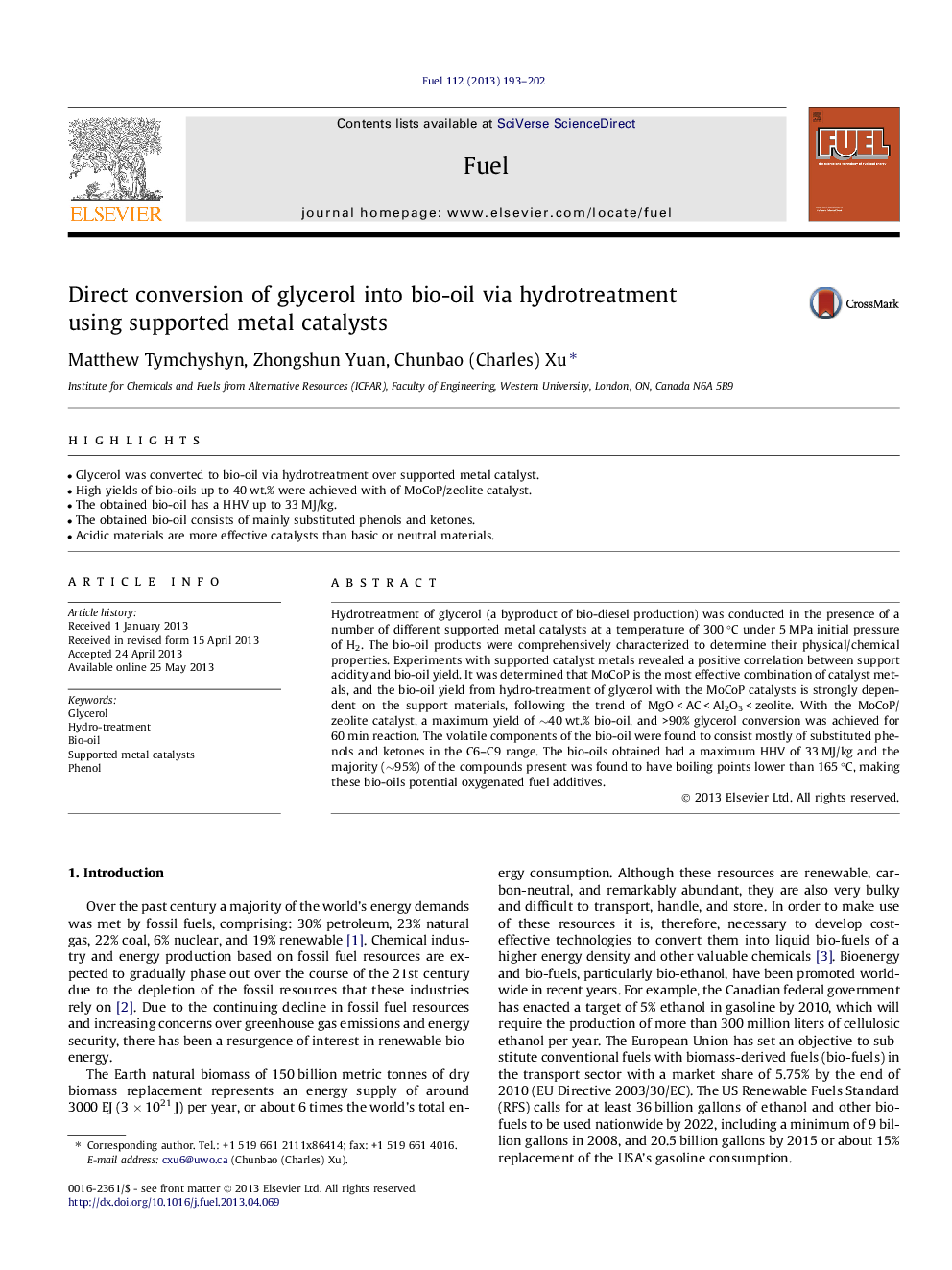| Article ID | Journal | Published Year | Pages | File Type |
|---|---|---|---|---|
| 6640130 | Fuel | 2013 | 10 Pages |
Abstract
Hydrotreatment of glycerol (a byproduct of bio-diesel production) was conducted in the presence of a number of different supported metal catalysts at a temperature of 300 °C under 5 MPa initial pressure of H2. The bio-oil products were comprehensively characterized to determine their physical/chemical properties. Experiments with supported catalyst metals revealed a positive correlation between support acidity and bio-oil yield. It was determined that MoCoP is the most effective combination of catalyst metals, and the bio-oil yield from hydro-treatment of glycerol with the MoCoP catalysts is strongly dependent on the support materials, following the trend of MgO < AC < Al2O3 < zeolite. With the MoCoP/zeolite catalyst, a maximum yield of â¼40 wt.% bio-oil, and >90% glycerol conversion was achieved for 60 min reaction. The volatile components of the bio-oil were found to consist mostly of substituted phenols and ketones in the C6-C9 range. The bio-oils obtained had a maximum HHV of 33 MJ/kg and the majority (â¼95%) of the compounds present was found to have boiling points lower than 165 °C, making these bio-oils potential oxygenated fuel additives.
Related Topics
Physical Sciences and Engineering
Chemical Engineering
Chemical Engineering (General)
Authors
Matthew Tymchyshyn, Zhongshun Yuan, Chunbao (Charles) Xu,
